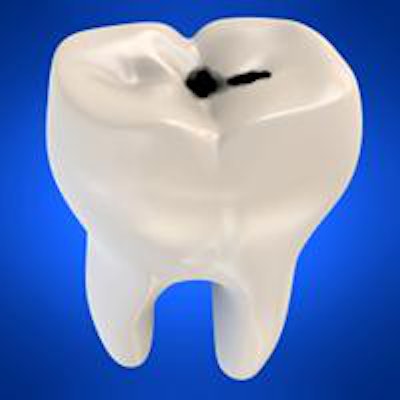
While there is no shortage of enthusiasm for xylitol in some sectors of dentistry, others are still skeptical of its usefulness in preventing caries or improving oral health.
A secondary analysis of a previously published three-year trial evaluating the effectiveness of xylitol lozenges compared to a placebo has found statistically significant results supporting xylitol's effectiveness (Journal of Dental Research, April 15, 2013).
"While our analysis shows that the caries preventive effect of xylitol [versus a] placebo was statistically significant, the magnitude of the risk-reduction effect was clinically modest," explained lead author André Ritter, DDS, professor and graduate program director of the department of operative dentistry at University of North Carolina's School of Dentistry, in an email to DrBicuspid.com.
Nonetheless, Dr. Ritter remains confident there is a role for xylitol in dentistry. "The takeaway is clear: Daily use of xylitol lozenges can help prevent root caries in adults," he stated. "This is a powerful message to those of us who struggle to treat this increasingly prevalent and potentially damaging (at a tooth level) condition."
Tooth surface matters
The three-year Xylitol for Adult Caries Trial the researchers used for their analysis was a placebo-controlled, double-blind, multicenter, randomized clinical trial (Journal of the American Dental Association, January 2013, Vol. 144:1, pp. 21-30).
“Daily use of xylitol lozenges can help prevent root caries in adults.”
The researchers in that study, which included members of Dr. Ritter's team, determined that the "xylitol lozenges reduced the caries increment 10%" and that the reduction, "which represented less than one-third of a surface per year, was not statistically significant," they wrote.
During the study, 681 participants underwent clinical examinations at different sites after 12, 24, and 33 months had passed. Participants had to have at least 12 teeth that had exposed dental surfaces and one or more coronal or root caries lesions. Of the 681 participants, 620 were included in the analysis of the study, 308 from the xylitol group and 312 from the placebo group. Participants in the xylitol group dissolved five lozenges containing 1 g of xylitol in their mouths throughout the day, while those in the placebo were given lozenges sweetened with sucralose.
"Our purpose with this secondary analysis was to compare the effects of xylitol mints with that of a placebo on the caries incidence rates for caries-active adults on different tooth surfaces," Dr. Ritter explained. "The primary analysis for this clinical trial indicated that the overall caries-prevention effect of xylitol on this sample was only about 11% per year. However, we hypothesized, based on previous studies and what we know about caries etiology, that the caries preventive effect could be different in different surfaces of the tooth."
They wanted to know if xylitol had more of an effect on coronal tooth surfaces and, if so, variations of its impact on different coronal surfaces. The results revealed benefits from the xylitol lozenges not noted in the primary study.
"When the xylitol versus placebo caries-preventive effects were analyzed by lumping all tooth surfaces together, the overall effect was nonsignificant: 11% less caries in the xylitol group versus placebo," Dr. Ritter said. "But when we analyzed the xylitol versus placebo caries-preventive effects by separating the tooth surfaces, the positive effects of xylitol on root surfaces were clear: 40% less root caries in the xylitol group versus placebo."
Larger doses warranted?
As with any other clinical trial, this study has limitations, Dr. Ritter noted.
"But given their low cost, low risk, and ease of use, we believe our results support the clinical recommendation that patients use xylitol lozenges to help prevent root caries," he said.
Dr. Ritter suggested that a longer study has the potential to reveal a more robust effect, particularly if a dose larger than 5 g per day is administered; that amount was previously considered adequate, but that opinion has changed in light of recent evidence, Dr. Ritter noted.
"I would like to see a larger scale, multicenter clinical trial evaluating different xylitol doses and delivery mechanisms in a more varied, higher-risk population (older adults, higher-risk patients, etc.)," he wrote. "It would also be important to compare xylitol's effectiveness with other established interventions such as fluoride in controlled conditions."
The results of this analysis, Dr. Ritter said, are strong enough to warrant such a study.
"Xylitol is not the silver bullet," he allowed, "but it is a useful tool, especially for patients at higher risk of root caries, as our results suggest."



















